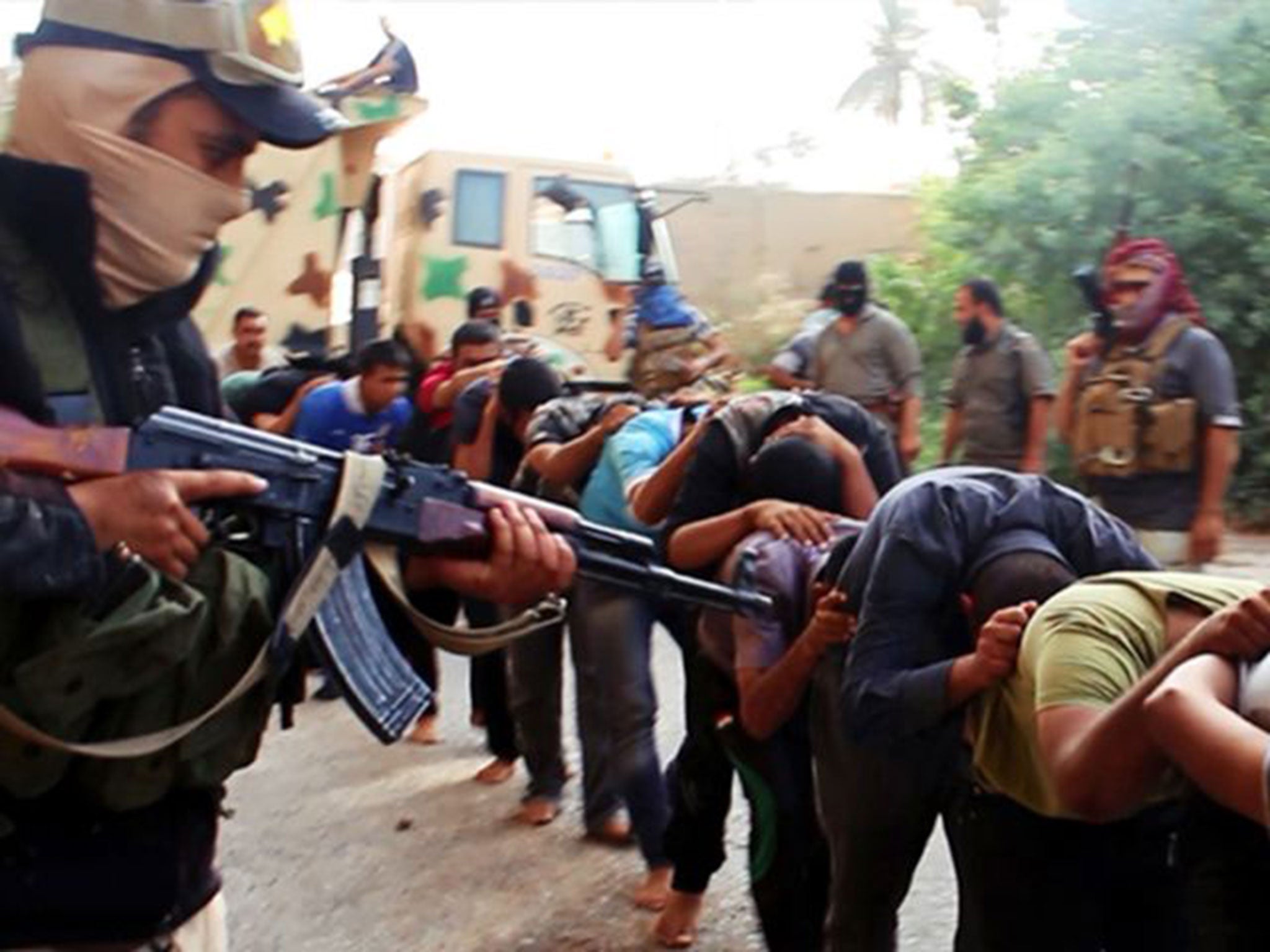Who is and who isn’t to blame for Isis being in Iraq
Whether or not you opposed the war in 2003 - you were wrong

Contrary to received wisdom, it isn’t easy to be right about events in hindsight. If it was then the job of the historian would essentially be redundant. It is, however, easy to be smug after the event, as should have been obvious this week from the outpouring of triumphalism and ‘I told you so’s over the incursion into Iraq of Islamist extremists.
The Islamic State in Iraq and al-Sham (Isis), an Islamist group considered too extreme even for Al Qaeda, are now in control of Iraq’s second largest city, Mosul. According to most readings of the event, this is a direct result of Tony Blair’s decision to join the 2003 US-led toppling of Saddam Hussein. Had Iraq still been the personal fiefdom of Saddam and the Ba’ath party, so this logic goes, then the Iraqi state would have been strong enough to repel the advancing Islamist army.
And indeed, in isolation this argument stands up: were the Iraq of 2003 (pre-invasion) simply transplanted into the unfolding situation of today there is a good chance Saddam would right now be bloodily repressing the attempted incursion into ‘his’ country by Isis militants.
But history doesn’t work like that. Indeed, the most important thing to take from the Middle East in the past 10 years is the knowledge that, whether or not you opposed the 2003 Iraq war, you were still wrong.
Let that sink in for a moment while I explain what I’m getting at.
The Iraq war was a mistake
The thing which many of those who supported the Iraq war still fail to grasp is that, back in 2003, it mattered that it was a right-wing Republican administration which was seeking to overthrow Saddam Hussein (as opposed to, say, the armed wing of Amnesty International). The problem wasn’t the initial invasion itself – the overthrow of Saddam was a relatively bloodless affair – it was what the US-led coalition did next that created the horrific mess we would come to associate with Iraq.
For supporters of the war, it isn’t enough to say that you didn’t know this would transpire; it was foreseeable long before the initial invasion. The Bush administration spurned all talk of ‘nation building’ in the lead up to the war, just as Bush had done on the campaign trail. The administration arrogantly believed it could go into Iraq, overthrow Saddam and get out immediately – paying for the whole thing with Iraqi oil money. In just one example of utter credulity, the occupational authority in Iraq threw hundreds of thousands of armed Iraqis out of work and onto the streets with no job and no salary.
But the anti-war movement can’t be smug
The calls of the anti-war movement for British and American troops to leave Iraq to the mercy of Islamist extremists during the 2003 -2007 period were irresponsible. It’s also true that, during the occupation, the Stop the War Coalition (StWC) supported ‘the resistance’ in Iraq by ‘any means necessary’, which in practice meant tacitly endorsing suicide bombing and the execution of Iraqis who chose to work with the coalition authorities.
Sorry to break this to you - but you don’t have clean hands simply because you opposed the 2003 war and went on a protest march in London. To paraphrase George Orwell, the choice before the British and American governments in 2003 was not a choice between good and evil but between two evils. The alternative to overthrowing Saddam was the continuation of one of the world’s worst dictatorships. Those calling for the incarceration of Tony Blair for war crimes have no trouble remembering Fallujah, but would do well to remember Halabja.
Iraq would not be a nice place today had ‘we’ not overthrown Saddam
Inaction has consequences too, as we know from Syria, where at least 150,000 people have been killed since the Assad regime started cracking down on peaceful protesters back in 2011. Advocates of the war in Iraq should certainly show contrition, but then so should those MPs who whooped and hollered when parliament voted last year not to punish Bashar al-Assad for dropping poison gas on Syrian children.
Were Saddam still in power today Iraq would probably look something like its neighbour, with a genocidal dictator holding onto power by violently stamping on a nascent Arab Spring-type uprising.
It isn’t (all) Barack Obama’s fault
Some are blaming Barack Obama for the Isis incursion into Iraq on the basis that he pulled American troops out of the country too hastily. It seems likely that an American troop presence would have deterred Isis to some extent, but it’s short-sighted to pin the blame for withdrawal solely on Obama. The Iraqi government requested that US troops leave the country, and there was no appetite in the US for Western troops remaining in Iraq.
Obama’s real failure is in Syria, where Islamic extremists have received ample backing from states like Saudi Arabia and Qatar while Obama has given only tepid backing to more moderate elements.
If you want to someone to blame, make it Isis
And lobby the government to take action to support those on the ground in Iraq, rather than smugly fulminate about a decision that was made over a decade ago by a man who's no longer in office.
Join our commenting forum
Join thought-provoking conversations, follow other Independent readers and see their replies
Comments
Bookmark popover
Removed from bookmarks